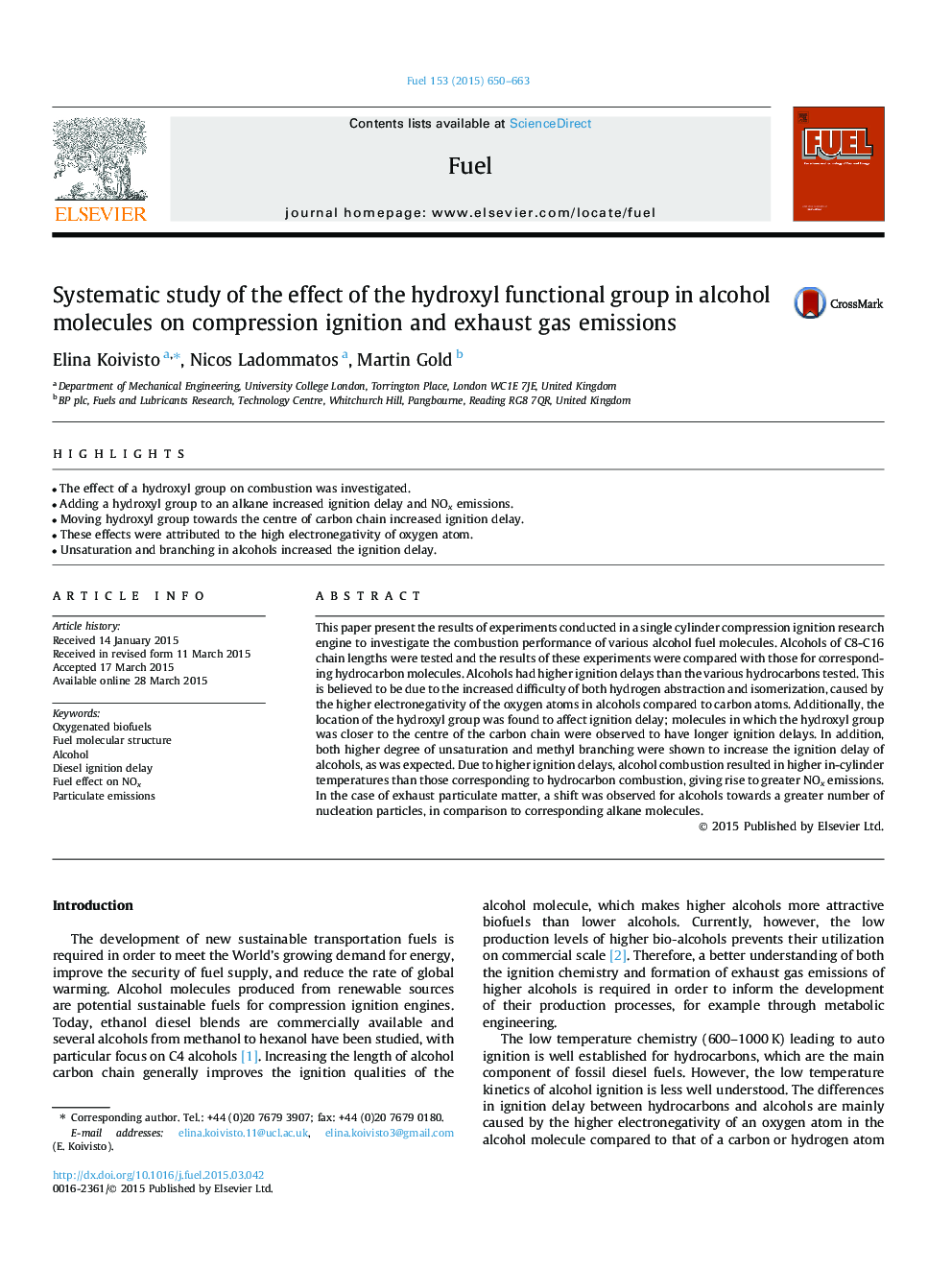| Article ID | Journal | Published Year | Pages | File Type |
|---|---|---|---|---|
| 6635650 | Fuel | 2015 | 14 Pages |
Abstract
This paper present the results of experiments conducted in a single cylinder compression ignition research engine to investigate the combustion performance of various alcohol fuel molecules. Alcohols of C8-C16 chain lengths were tested and the results of these experiments were compared with those for corresponding hydrocarbon molecules. Alcohols had higher ignition delays than the various hydrocarbons tested. This is believed to be due to the increased difficulty of both hydrogen abstraction and isomerization, caused by the higher electronegativity of the oxygen atoms in alcohols compared to carbon atoms. Additionally, the location of the hydroxyl group was found to affect ignition delay; molecules in which the hydroxyl group was closer to the centre of the carbon chain were observed to have longer ignition delays. In addition, both higher degree of unsaturation and methyl branching were shown to increase the ignition delay of alcohols, as was expected. Due to higher ignition delays, alcohol combustion resulted in higher in-cylinder temperatures than those corresponding to hydrocarbon combustion, giving rise to greater NOx emissions. In the case of exhaust particulate matter, a shift was observed for alcohols towards a greater number of nucleation particles, in comparison to corresponding alkane molecules.
Keywords
Related Topics
Physical Sciences and Engineering
Chemical Engineering
Chemical Engineering (General)
Authors
Elina Koivisto, Nicos Ladommatos, Martin Gold,
